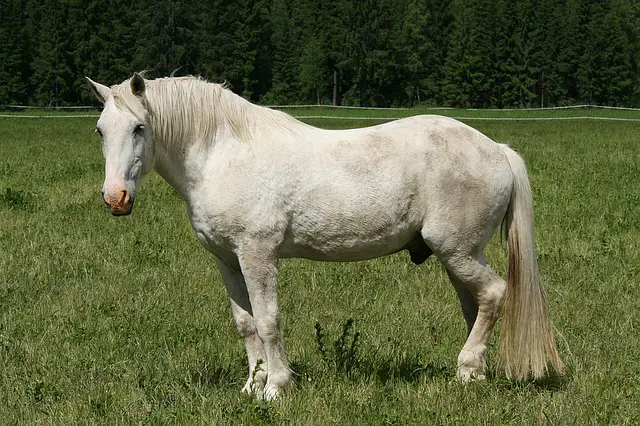Last Updated on March 18, 2022 by Allison Price
Intestinal parasites Small organisms that spend a part of their lives in an animal host, such as the horse. They live in the body’s tissues, organs and cavities. They also feed on the host animal for their nutrition. Many different parasites can affect horses. Parasites can cause varying degrees of damage.
Parasite infestation can cause loss of nutrients and blood from the host. This can lead to serious medical problems. Horses with parasites are likely to have poor health. They will experience decreased growth and performance as well as reduced fertility and reproductive capabilities.
Although there are many internal parasites that can infect horses, only a handful of them cause serious health problems. It is essential to understand the life cycle of parasites before you can establish a parasite control program. Effective prevention and control programs can interrupt the parasite’s life cycle. Horse health is affected in some areas by nematodes. These include large, small strongyles and ascarids. When designing a parasite control program, other parasites may be less important, such as pinworms or botfly larvae.

Ascarids and Parascaris Equorum are both large yellowish-white parasites that can be found in horses’ feces. Adult horses are immune to the parasite so roundworms infect primarily young horses under 2 years old.
The roundworm’s life cycle begins when the horse infected with it eats grass, feed, and water contaminated by the eggs. The eggs hatch into larvae which burrow into small intestines and migrate through veins to reach the liver, heart and finally the lungs. The parasite larvae migrate in the lungs’ air spaces and are then swallowed. The life cycle is completed when the roundworm larvae return to their small intestines, where they become egg-producing adults. The entire life cycle takes approximately three months.
Horses can sustain physical damage during migration, including inflammation and scarring of the liver and lung tissue. Due to intestinal blockage, or rupture, adult roundworms can cause severe physical damage. This can cause mild to severe colic and feed loss, as well as digestive upset.
Unthriftiness, unthriftiness and slow growth are all signs of an ascarid infection. As a result of larvae migrating, some young horses experience nasal discharge and a cough.

